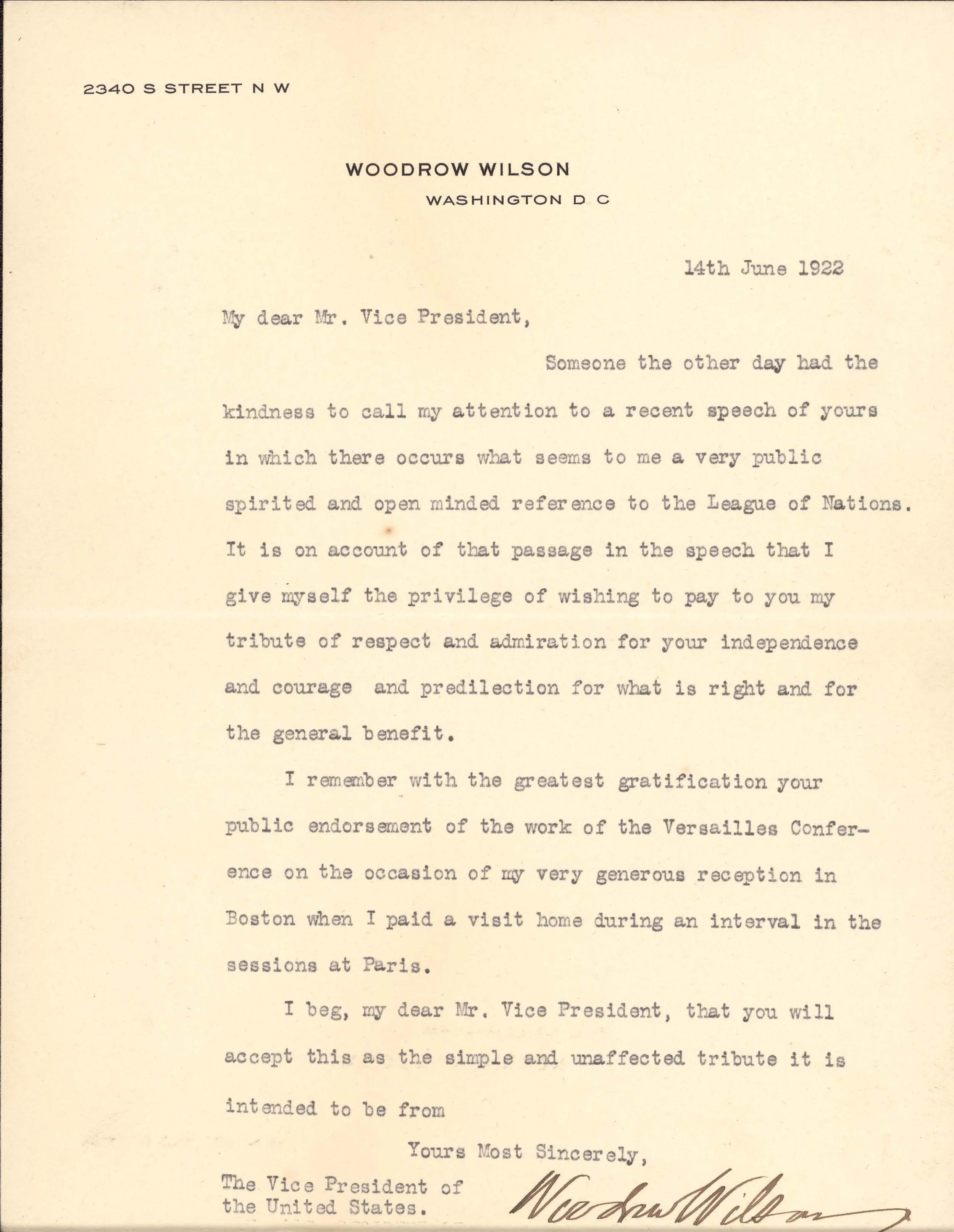“Someone the other day had the kindness to call my attention to a recent speech of yours”
Woodrow Wilson writing to Vice President Calvin Coolidge: June 14, 1922.
Wilson is writing the vice president because of “a recent speech of yours in which there occurs what seems to me a very public spirited and open minded reference to the League of Nations.” As the Washington Post reported on June 8, 1922, “Harking back to the league of nations, the Vice President asserted that ‘it was at least the attempted expression of a noble aspiration for world association and understanding.’” Coolidge had an evolving view of the League. In his Autobiography, he writes of his thoughts about the League in 1920: “At that time we were close to the war. Our sympathies were very much with our allies and a great body of sentiment in our country, which may be called the missionary spirit, was strongly in favor of helping Europe. To them the League meant an instrument for that end… This sentiment was very marked in the East where it had a strong hold on a very substantial element of the Republican party.”
But Coolidge’s view of the League changed during the years he served in Washington. He writes in his Autobiography: “Since that time the situation has changed. The war period has closed and a separate treaty has been made and ratified. The more I have seen of the conduct of our foreign relations the more I am convinced that we are better off out of the League… The votes of our delegates there would all the time disturb our domestic tranquility here. We have come to realize this situation very completely now, but in 1920 it was not so clear.”
In this letter, Wilson thanks Coolidge for the “very generous reception in Boston when I paid a visit home during an interval in the sessions at Paris.” Wilson returned to the US from the first session of the Paris Peace Conference on February 24, 1919, arriving on the USS George Washington in Boston. He was greeted by Governor Calvin Coolidge. Coolidge had issued a proclamation of February 19, saying that Wilson “comes here as President of our great Nation, as Commander-in-Chief in a war prosecuted to victory, as representative of America at the most important conference of nations ever assembled to discuss the peace of the world.”

